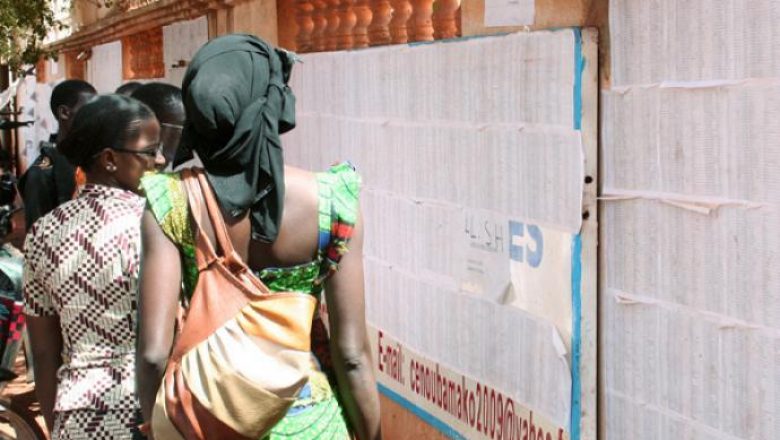
Mali’s Ministry of National Education has officially released the results of the June 2025 baccalauréat exams, revealing a national pass rate of just 27.48%. Of the 157,821 registered candidates, only 43,363 students successfully passed the final secondary school examination.
This year’s figure reflects a marginal increase from the previous year’s pass rate of 27.42%, highlighting a worrying trend of stagnation in educational outcomes despite major reform efforts.
The results come in the wake of the États Généraux de l’Éducation, a national education summit held in Bamako in January 2024, which sought to redefine the country’s educational priorities and overhaul key aspects of the system. Yet, nearly 18 months later, the baccalauréat performance indicates that these reforms have yet to yield measurable results.
At the summit, nine strategic pillars were introduced to improve education across the nation. These included professionalising the teaching workforce, revising curricula, integrating national languages into the classroom, promoting inclusive education, and ensuring the safety of school environments.
These initiatives form part of the broader PRODEC 2 (Second Ten-Year Education Development Programme) and align with the recommendations of the Assises Nationales de la Refondation—a national consultation process for structural reform.
Despite these ambitious frameworks, Mali’s secondary education system continues to face significant challenges, including limited resources, teacher shortages, curriculum gaps, and ongoing insecurity in parts of the country.
The persistently low pass rates underscore the urgent need for accelerated implementation of reforms and increased investment in the education sector.
While the government has reiterated its commitment to educational transformation, the 2025 baccalauréat results serve as a stark reminder that systemic change will require not only strong policy but also sustained action and accountability at every level.



